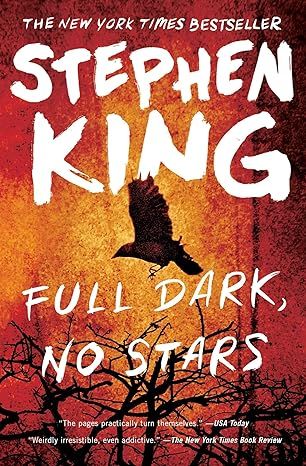Full Dark, No Stars
4.6
-
6,762 ratings
From the #1 New York Times bestselling author Stephen King, four “disturbing, fascinating” (The Washington Post) novellas—including the story “1922,” a Netflix original film—that explore the dark side of human nature.
“The pages practically turn themselves” (USA TODAY) in Full Dark, No Stars, an unforgettable collection centered around the theme of retribution.
In “1922,” a violence awakens inside a man when his wife proposes selling off the family homestead, setting in motion a grisly train of murder and madness.
In “Big Driver”, a mystery writer is brutally assaulted by a stranger along a Massachusetts back road and plots a revenge that will bring her face-to-face with another stranger: the one inside herself.
In “Fair Extension,” making a deal with the devil not only saves a man from terminal illness but also provides rich recompense for a lifetime of resentment.
In “A Good Marriage,” the trust forged by more than twenty years of matrimony is irrevocably shattered when a woman makes a chance discovery leading to the horrifying implications of just who her husband really is.
Like Different Seasons and Four Past Midnight, which generated such enduring hit films as The Shawshank Redemption and Stand by Me, King’s Full Dark, No Stars is a “page-turner” (The New York Times) “as gripping as his epic novels” (St. Louis Post-Dispatch), and “an extraordinary collection, thrillingly merciless, and a career high point” (The Telegraph, UK).
Kindle
$11.99
Available instantly
Audiobook
$0.00
with membership trial
Hardcover
$30.58
Paperback
$15.81
Ships from
Amazon.com
Payment
Secure transaction
ISBN-10
1501197940
ISBN-13
978-1501197949
Print length
384 pages
Language
English
Publisher
Scribner
Publication date
June 11, 2018
Dimensions
5.5 x 0.9 x 8.37 inches
Item weight
12 ounces
Popular Highlights in this book
When it came to the dark fuckery of the human heart, there seemed to be no limit.
Highlighted by 638 Kindle readers
I believe that there is another man inside of every man, a stranger, a Conniving Man.
Highlighted by 408 Kindle readers
In the end we are all caught in devices of our own making. I believe that. In the end we are all caught.
Highlighted by 265 Kindle readers
Product details
ASIN :
B003YUC3YE
File size :
4315 KB
Text-to-speech :
Enabled
Screen reader :
Supported
Enhanced typesetting :
Enabled
X-Ray :
Enabled
Word wise :
Enabled
Editorial Reviews
From Publishers Weekly
Starred Review. King leaves the supernatural behind to find the macabre in stories of ordinary misfortune. In each, ordinary people discover how their choices define who they are and what they can become. As usual, King's characters are multidimensional and colorful, if not necessarily sympathetic. Craig Wasson takes on two of the stories, and his raspy voice is a pleasure to listen to. The main characters in "1922" and "Fair Exchange" are not young men, and his mature gruffness and easy delivery are perfect. And while Jessica Hecht's reading of both "Big Driver" and "A Good Marriage" is pleasant and steady, her characterizations through dialogue are not very broad, and sometimes sound timid and whiny. Still, the strength of the stories keeps the listener enthralled. A Scribner hardcover. (Nov.)
(c) Copyright PWxyz, LLC. All rights reserved.
From Booklist
Starred Review King begins his afterword by stating, “The stories in this book are harsh.” The man ain’t whistlin’ Dixie. Returning to the novella—possibly his brightest canvas—King provides four raw looks at the limits of greed, revenge, and self-deception. The first, “1922,” is an outright masterpiece and takes the form of the written confession of one Wilf James. Back in 1922, see, Wilf killed his wife to prevent her selling off part of the farm, but tossing her corpse down the well didn’t exactly stop her. It’s Poe meets Creepshow by way of Steinbeck and carries the bleak, nearly romantic doom of an old folk ballad about murderin’ done wrong. A pair of the remaining tales feature female protagonists considering hiding others’ crimes: “Big Driver” is a rape-revenge tale about a writer of cozy mysteries who ends up in the uncoziest of situations, while “A Good Marriage” stars a wife whose husband of 27 years turns out to be hiding an unimaginable secret. Though the shortest story by far, “Fair Extension” is no slouch, submitting for your approval one Mr. Elvid (get it?), who is out to shine a little light on our blackest urges. Rarely has King gone this dark, but to say there are no stars here is crazy. High-Demand Backstory: King has gone on record saying he believesthat American readers should pay more attention to the virtues of short fiction; and if anyone can get reluctant short-story and novella readers into the swing, he certainly can with this book. --Daniel Kraus
Review
“The master of horror is often at his scariest when writing stories of real life frights, like the ones in his new story collection, Full Dark, No Stars. Though these four, long stories probably won't cause too many nightmares - well, maybe about rats - it's still not a good idea to read these alone at night because they are very disturbing, and they will stay with the reader long after the lights are dimmed…King's characters are well-drawn in relatively few words, although the first two stories are long enough to stand on their own as short novels. Even Tess proves true, although it took a statistic quoted on the penultimate page of her tale to make her initial reactions to the pain she suffers seem logical. But as in his other novels and stories, the narrative is the star. King's writing keeps the reader eagerly turning pages, even while feeling horrified and disgusted by what's happening. And he always seems to sneak in a surprise at the end. King never disappoints.”—Colleen O’Dea, Asbury Park Press
“Here’s how King describes his latest offering: ‘The stories in this book are harsh.’ Believe him. The unifying theory is that we’re all capable of horrific acts – like the farmer in ‘1922’ who murders his wife to protect his property’s value – and that we deny this grim reality at our own peril. Whether or not you agree, Full Dark is gripping storytelling.”—People
“For a writer whose books need a big stage, Stephen King also can turn out shorter stories just as gripping as his epic novels. All four stories in Full Dark, No Stars are about the dark turns taken in relationships between men and women. Uneven in length, they also are ambiguous in morality, which is one of the delights of this book…In all four of his stories, King leaves readers to think about how they might react under similar circumstances. And while we might do as the characters did, the suspense is in the uncertainty.”—Amanda St. Amand, St. Louis Post-Dispatch
“King just keeps writing, and his stories don't suffer one bit. If anything, they're better, deepened by his maturity. Full Dark, No Stars, the latest offering from one of our great masters of popular fiction, is a prime example… All of these stories are a kind of tribute to some aspect of our culture, a dark snippet of something we've all thought about, but likely never lived… King's knack for storytelling is alive even amid these apparently predictable scenarios. Each of the stories finds a way to be surprising, even shocking. Each of them has something new to offer beyond the subgenres they appear to inhabit. All are woven together by tight, honest prose that is the stuff of great short fiction. Yes, King has written novels so thick that teams of oxen are needed pull them off the shelf, but he's also a master of briefer forms, and not a word is wasted here. Full Dark, No Stars is proof that King has not yet faded into the great literary beyond. He's still a great storyteller, and still a great read.”—Matthew Jackson, The Hunstville Item
“A quartet of previously unpublished tales that more than satisfy their prolific author’s stated criteria for good fiction. Propulsive? Check. Assaultive? Don’t ask. The stories in Full Dark, No Stars are for the most part only slightly supernatural and deal, instead, with the unlovelier aspects of merely human behavior...What’s amazing, and maybe a little unsettling, about King is the consistency of his purpose and his manner over a long stretch of time. He’s essentially the same grab-you-by-the-lapels literary showman he was…King still writes with the verve and glee and heedless ease of a very young man…When you’re reading Full Dark, No Stars, carried along by his rollicking, vivid prose, you think (if you’re thinking at all: ‘God help him, this man is having fun.’ This naked pleasure is King’s secret ingredient: it makes his work weirdly irresistible, even addictive.”—Terrence Rafferty, The New York Times Book Review
“Another collection of satisfying short stories… While not as subtle as some of King's other fiction, these novellas offer dark humor and to-the-point gore. This quick and more brutal King installment will be in high demand for horror/thriller readers and dedicated King fans.”—Library Journal
“King begins his afterword by stating, ‘The stories in this book are harsh.’ The man ain’t whistlin’ Dixie. Returning to the novella—possibly his brightest canvas—King provides four raw looks at the limits of greed, revenge, and self-deception…Rarely has King gone this dark, but to say there are no stars here is crazy.”—Booklist, Starred review
“Eerie twists of fate drive the four longish stories in King's first collection since Just After Sunset…As in Different Seasons, King takes a mostly nonfantastic approach to grim themes. Now, as then, these tales show how a skilled storyteller with a good tale to tell can make unsettling fiction compulsively readable.”—Publishers Weekly, Starred review
About the Author
Stephen King is the author of more than sixty books, all of them worldwide bestsellers. His recent work includes the short story collection You Like It Darker, Holly (a New York Times Notable Book of 2023), Fairy Tale, Billy Summers, If It Bleeds, The Institute, Elevation, The Outsider, Sleeping Beauties (cowritten with his son Owen King), and the Bill Hodges trilogy: End of Watch, Finders Keepers, and Mr. Mercedes (an Edgar Award winner for Best Novel and a television series streaming on Peacock). His novel 11/22/63 was named a top ten book of 2011 by The New York Times Book Review and won the Los Angeles Times Book Prize for Mystery/Thriller. His epic works The Dark Tower, It, Pet Sematary, Doctor Sleep, and Firestarter are the basis for major motion pictures, with It now the highest-grossing horror film of all time. He is the recipient of the 2020 Audio Publishers Association Lifetime Achievement Award, the 2018 PEN America Literary Service Award, the 2014 National Medal of Arts, and the 2003 National Book Foundation Medal for Distinguished Contribution to American Letters. He lives in Bangor, Maine, with his wife, novelist Tabitha King.
Read more
Sample
1
The one thing nobody asked in casual conversation, Darcy thought in the days after she found what she found in the garage, was this: How’s your marriage? They asked how was your weekend and how was your trip to Florida and how’s your health and how are the kids; they even asked how’s life been treatin you, hon? But nobody asked how’s your marriage?
Good, she would have answered the question before that night. Everything’s fine.
She had been born Darcellen Madsen (Darcellen, a name only parents besotted with a freshly purchased book of baby names could love), in the year John F. Kennedy was elected President. She was raised in Freeport, Maine, back when it was a town instead of an adjunct to L.L.Bean, America’s first superstore, and half a dozen other oversized retail operations of the sort that are called “outlets” (as if they were sewer drains rather than shopping locations). She went to Freeport High School, and then to Addison Business School, where she learned secretarial skills. She was hired by Joe Ransome Chevrolet, which by 1984, when she left the company, was the largest car dealership in Portland. She was plain, but with the help of two marginally more sophisticated girlfriends, learned enough makeup skills to make herself pretty on workdays and downright eye-catching on Friday and Saturday nights, when a bunch of them liked to go out for margaritas at The Lighthouse or Mexican Mike’s (where there was live music).
In 1982, Joe Ransome hired a Portland accounting firm to help him figure out his tax situation, which had become complicated (“The kind of problem you want to have,” Darcy overheard him tell one of the senior salesmen). A pair of briefcase-toting men came out, one old and one young. Both wore glasses and conservative suits; both combed their short hair neatly away from their foreheads in a way that made Darcy think of the photographs in her mother’s MEMORIES OF ’54 senior yearbook, the one with the image of a boy cheerleader holding a megaphone to his mouth stamped on its faux-leather cover.
The younger accountant was Bob Anderson. She got talking with him on their second day at the dealership, and in the course of their conversation, asked him if he had any hobbies. Yes, he said, he was a numismatist.
He started to tell her what that was and she said, “I know. My father collects Lady Liberty dimes and buffalo-head nickels. He says they’re his numismatical hobby-horse. Do you have a hobby-horse, Mr. Anderson?”
He did: wheat pennies. His greatest hope was to some day come across a 1955 double-date, which was—
But she knew that, too. The ’55 double-date was a mistake. A valuable mistake.
Young Mr. Anderson, he of the thick and carefully combed brown hair, was delighted with this answer. He asked her to call him Bob. Later, during their lunch—which they took on a bench in the sunshine behind the body shop, a tuna on rye for him and a Greek salad in a Tupperware bowl for her—he asked if she would like to go with him on Saturday to a street sale in Castle Rock. He had just rented a new apartment, he said, and was looking for an armchair. Also a TV, if someone was selling a good one at a fair price. A good one at a fair price was a phrase with which she would grow comfortably familiar in the years to come.
He was as plain as she was, just another guy you’d pass on the street without noticing, and would never have makeup to make him prettier… except that day on the bench, he did. His cheeks flushed when he asked her out, just enough to light him up a little and give him a glow.
“No coin collections?” she teased.
He smiled, revealing even teeth. Small teeth, nicely cared for, and white. It never occurred to her that the thought of those teeth could make her shudder—why would it?
“If I saw a nice set of coins, of course I’d look,” he said.
“Especially wheat pennies?” Teasing, but just a little.
“Especially those. Would you like to come, Darcy?”
She came. And she came on their wedding night, too. Not terribly often after that, but now and then. Often enough to consider herself normal and fulfilled.
In 1986, Bob got a promotion. He also (with Darcy’s encouragement and help) started up a small mail-order business in collectible American coins. It was successful from the start, and in 1990, he added baseball trading cards and old movie memorabilia. He kept no stock of posters, one-sheets, or window cards, but when people queried him on such items, he could almost always find them. Actually it was Darcy who found them, using her overstuffed Rolodex in those pre-computer days to call collectors all over the country. The business never got big enough to become full-time, and that was all right. Neither of them wanted such a thing. They agreed on that as they did on the house they eventually bought in Pownal, and on the children when it came time to have them. They agreed. When they didn’t agree, they compromised. But mostly they agreed. They saw eye-to-eye.
How’s your marriage?
It was good. A good marriage. Donnie was born in 1986—she quit her job to have him, and except for helping with Anderson Coins & Collectibles never held another one—and Petra was born in 1988. By then, Bob Anderson’s thick brown hair was thinning at the crown, and by 2002, the year Darcy’s Macintosh computer finally swallowed her Rolodex whole, he had a large shiny bald spot back there. He experimented with different ways of combing what was left, which only made the bald spot more conspicuous, in her opinion. And he irritated her by trying two of the magical grow-it-all-back formulas, the kind of stuff sold by shifty-looking hucksters on high cable late at night (Bob Anderson became something of a night owl as he slipped into middle age). He didn’t tell her he’d done it, but they shared a bedroom and although she wasn’t tall enough to see the top shelf of the closet unaided, she sometimes used a stool to put away his “Saturday shirts,” the tees he wore for puttering in the garden. And there they were: a bottle of liquid in the fall of 2004, a bottle of little green gel capsules a year later. She looked the names up on the Internet, and they weren’t cheap. Of course magic never is, she remembered thinking.
But, irritated or not, she had held her peace about the magic potions, and also about the used Chevy Suburban he for some reason just had to buy in the same year that gas prices really started to climb. As he had held his, she supposed (as she knew, actually), when she had insisted on good summer camps for the kids, an electric guitar for Donnie (he had played for two years, long enough to get surprisingly good, and then had simply stopped), horse rentals for Petra. A successful marriage was a balancing act—that was a thing everyone knew. A successful marriage was also dependent on a high tolerance for irritation—this was a thing Darcy knew. As the Stevie Winwood song said, you had to roll widdit, baby.
She rolled with it. So did he.
In 2004, Donnie went off to college in Pennsylvania. In 2006, Petra went to Colby, just up the road in Waterville. By then, Darcy Madsen Anderson was forty-six years old. Bob was forty-nine, and still doing Cub Scouts with Stan Morin, a construction contractor who lived half a mile down the road. She thought her balding husband looked rather amusing in the khaki shorts and long brown socks he wore for the monthly Wildlife Hikes, but never said so. His bald spot had become well entrenched; his glasses had become bifocals; his weight had spun up from one-eighty into the two-twenty range. He had become a partner in the accounting firm—Benson and Bacon was now Benson, Bacon & Anderson. They had traded the starter home in Pownal for a more expensive one in Yarmouth. Her breasts, formerly small and firm and high (her best feature, she’d always thought; she’d never wanted to look like a Hooters waitress) were now larger, not so firm, and of course they dropped down when she took off her bra at night—what else could you expect when you were closing in on the half-century mark?—but every so often Bob would still come up behind her and cup them. Every so often there was the pleasant interlude in the upstairs bedroom overlooking their peaceful two-acre patch of land, and if he was a little quick on the draw and often left her unsatisfied, often was not always, and the satisfaction of holding him afterward, feeling his warm man’s body as he drowsed away next to her… that satisfaction never failed. It was, she supposed, the satisfaction of knowing they were still together when so many others were not; the satisfaction of knowing that as they approached their Silver Anniversary, the course was still steady as she goes.
In 2009, twenty-five years down the road from their I-do’s in a small Baptist church that no longer existed (there was now a parking lot where it had stood), Donnie and Petra threw them a surprise party at The Birches on Castle View. There were over fifty guests, champagne (the good stuff), steak tips, a four-tier cake. The honorees danced to Kenny Loggins’s “Footloose,” just as they had at their wedding. The guests applauded Bob’s breakaway move, one she had forgotten until she saw it again, and its still-airy execution gave her a pang. Well it should have; he had grown a paunch to go with the embarrassing bald spot (embarrassing to him, at least), but he was still extremely light on his feet for an accountant.
But all of that was just history, the stuff of obituaries, and they were still too young to be thinking of those. It ignored the minutiae of marriage, and such ordinary mysteries, she believed (firmly believed), were the stuff that validated the partnership.
Read more
About the authors
Stephen King
Stephen King is the author of more than fifty books, all of them worldwide bestsellers. His first crime thriller featuring Bill Hodges, MR MERCEDES, won the Edgar Award for best novel and was shortlisted for the CWA Gold Dagger Award. Both MR MERCEDES and END OF WATCH received the Goodreads Choice Award for the Best Mystery and Thriller of 2014 and 2016 respectively.
King co-wrote the bestselling novel Sleeping Beauties with his son Owen King, and many of King's books have been turned into celebrated films and television series including The Shawshank Redemption, Gerald's Game and It.
King was the recipient of America's prestigious 2014 National Medal of Arts and the 2003 National Book Foundation Medal for distinguished contribution to American Letters. In 2007 he also won the Grand Master Award from the Mystery Writers of America. He lives with his wife Tabitha King in Maine.
Read more
Reviews
Customer reviews
4.6 out of 5
6,762 global ratings
Michael Brown
5
Full Dark Great Thought Provoking Stories
Reviewed in the United States on July 2, 2011
Verified Purchase
The stories Stephen King tells cause us to look deep within ourselves and possibly confront the darkness of our own sinful hearts. They cause us to ask and answer what would we do in a certain situation. The stories in this collection are very "in-your-face" Old Testament style stories. King holds nothing back. You will feel revulsion, anger, sadness, and probably many other emotions as you read.
Full Dark, No Stars is the newest collection of short stories put out by Stephen King. What we get is four stories which look at what normal, ordinary people would possibly do in extraordinary situations.
In the first story, "1922", the main character, Wilfred Leland James, is sitting in a hotel room writing out his confession of killing his wife in 1922. Wilfred could be considered the "anti-Job" since Job was righteous and went through hell because of a bet between the Devil and God. Wilfred's resulting situation is a consequence of murdering his wife with the help of his son, Henry. You walk through the year 1922 and the following years with "Wilf" as he travels down the road to the point he is compelled to write this confession. His regret for bringing his son into it is greater than the crime itself. As some reviewers have said, it is very Poe-esque.
The second story, "Big Driver", is about the rape of Tess and the fragmentation of her mind because of it. Tess is an author who is a last minute replacement for a Books & Brown Baggers, a noon lecture series with different authors at Chicopee Public Library. The head librarian Ramona Norville afterwards suggests a shortcut home, a more scenic route. That is where the story really begins. As Tess' car gets a flat in the middle of nowhere - this blue truck pulls up and offers to help her and at the end she has to face the stranger within.
In the third story, "Fair Extension", we meet Dave Streeter, a 50-year-old man who is dying of cancer, who, on a whim, stops on the side of an airport extension road and meets a salesman named George Elivd, who specializes in all types of extensions - from life extensions to loan extensions (which Dave knows all about being a loan officer at a bank) to almost anything else. The cost? Not his soul, for as Mr. Elivd says, souls "have become poor and transparent things" but only 15% of his yearly income. All he has to do is name who he hates the most and he will have 15, even possibly 20 to 25 years of life extension given to him. But there is a cost, to the person he hates.
The last story, "A Good Marriage," looks at Bob and Darcy's great 27 year marriage, which is not as it seems. Bob is a coin collector and a partner in his CPA firm. He has left for a few days to close a deal and look at some new coins. While she is at home the remote stops working so she goes out to look for batteries. And she stumbles upon a secret that will change everything. The question is, can she forgive and forget and move on and save the marriage? Or is it all shot to hell?
This book is not for the faint of heart but I still highly recommend it. For it causes each of us to ask the questions that, at least most of the time, we try very hard not to...
From Third Option Men
Read more
David Dube
5
Mysterious, Compelling, Intrigueing and Scary
Reviewed in the United States on April 24, 2012
Verified Purchase
I loved these stories. They were as close to perfection as you can get. I think this type of collection- four stories that aren't too long nor too short-are where Stephen King really shines. Similar collections include Different Seasons and Four Past Midnight, both of which were great.
I think the reason why this is so is because Stephen King's greatest literary strength is his ability to think up compelling story ideas. And stories of this length offer the perfect opportunity to explore these ideas sufficiently, without taking too many detours and going off on too many tangents.
That's not to say that there's anything wrong with a really long novel, at least if it's done right. When it's done right, a long novel becomes a very rich experience- something you remember with fondness, maybe even amazement, for the rest of your life. But, when it's done wrong, a long novel becomes a chore. It becomes more of an academic exercise than an enjoyable experience. Many of Stephen King's long novels, in my opinion, are just okay- they fall somewhere in that frustrating gray area between academic exercise and enjoyable experience.
But not so with these stories. I was enraptured and intrigued all the way through these babies. It was just so much fun!
I would say the most meaningful one is definitely the story about the dying guy who makes a deal with the devil, to not just save his life, but to improve it greatly. I've often thought myself that this sort of thing actually exists in real life. This often seems to me to be the more palatable explanation than just explaining everything away through the advent of good or bad luck.
The most violent story in this collection is definitely the first one. And as I was reading it I thought that it might actually be too much, that the horrible violence was so graphic and disturbing that it was going to ruin the story completely. Fortunately, however, the violence was relatively brief, and the suspense, education and intrigue that followed made up for it.
I was also very pleased to discover that there was what was essentially a mystery story in this package. It was a mystery story and a thriller all rolled into one! Talk about striking it lucky! I'm an ardent fan of such stories- both real and fiction. It was essentially this plot-style that led me to the horror genre in the first place. Horror stories, as a general rule, for all their violence, offer the best mysteries. I can't miss an episode of 48 Hours Mysteries, and I couldn't put this story down!
Although all these stories were creepy, the only one that I would definitely call horror would be the last one. Don't be fooled by the title! On television, the show The Good Wife is not about the adventures, trials and tribulations of a shy reclusive housewife. It is actually a story about life in a successful law firm, which is essentially run by tough, smart hard-working women. Similarly, this story, Good Marriage, is not about the adventures and misadventures of a happy housewife.
Instead, it is a very intrigueing character study of a serial killer! I've always been fascinated by such stories, not because I enjoy hearing or reading about the activities of these degenerates, but because I've always been intrigued by the vastness and complexity of the human mind. The field of Abnormal Psychology is one of the most fascinating fields in science, in my opinion. When you study it you learn all about the things that can go wrong with the mind of an intelligent being. And because, in general, life is hard, and always has been, for many of us, you end up learning alot about yourself and your ancestors. You learn about how to deal better with all the trials and tribulations that life throws your way.
Am I saying that a hard life creates criminals? No, I'm not saying that, at least for most of us, and for most of the time. In fact, only a very small percentage of the population could be considered to be deviant enough to be considered psychotic. However, I do think every one of us has a dark side. And I think one of the main goals of this life is to learn how to control this dark side, to learn how to be a good person even in the face of adversity.
And so, I think, when you study the lives of those among us who, unfortunately, were not successful in this battle, it offers insight into how you can further improve your own personality and behavior. Stephen King does an excellent job, in this story, of thoroughly exploring the mind of one such particularly-disturbing case. But not only that, he also explores how the behavior of this disturbed mind affects others around him, especially those who, surprisingly, have come to love him.
I have heard about similar stories- the picture I saw of Gacy hugging his sister while he was in jail, where both of them had big smiles planted on their faces, will haunt me forever- but I was really intrigued with Stephen King's particular take on this subject. As I have been before. This is not the first time he explores this. You could actually make a believable argument that this is what he writes about the most, though probably not with as much realism as he does in this story. Needless to say, this was my favorite story of the bunch. And if you only read one story in this book, I would recommend this one.
This was definitely a fascinating and compelling collection. It is definitely a memorable experience, and a must-read!
Read more
11 people found this helpful
Anthony J Novak
5
One of Stephen King's best and Craig Wasson is an excellent choice for audiobooks
Reviewed in the United States on February 16, 2015
Verified Purchase
Stephen King excels in the short form (short stories or short novels known as novellas). I think it is because the length really helps keep Stephen King in check. Sometimes, Stephen King's novels seem to meander. His talent can keep the story interesting even if the end result feels wekakened by the over-length. Short stories and novellas force King to focus, which makes the end result more compelling and with stronger themes. It is no surprise that some of his best works are shot like Rita Hayworth and The Shawshank Redemption, The Body, Everything's Eventual, and Riding the Bullet.
You can add Full Dark, No Stars, which contains 4 novellas. The novellas have very similar tones, story elements and styles--murder, secrets, family, desperation. The stories are very dark (no pun intended) and a few of them are exceptional. "1922" is a period piece about a father, mother and son and an inheritance (prime farm land) that threatens to break the family part. What follows is a compelling tale about the steep price that comes with committing a crime. The story is incredibly compelling and constantly surprises. It carefully balances the line between real and supernatural.
"Big Driver" is a kind of standard revenge story, but it has a few good moments. "Fair Extension" (the shortest of the bunch) is really a short story, but it is a very well written one that takes the standard selling-your-soul-to-the-devil story and turns into something unique, surprisingly and darkly comic. The dialogue between the main character and the devil among us is so strong and so well written; it is easy to visualize the scene, which is one of the reasons why Stephen King works are translated to the movie screen or TV. "A Good Marriage" is about how we do not really know everything about the people we are close to. A woman discovers a horrible secret about her husband and then desperately tries to find a way out of the situation.
All of the novellas build an impending doom that makes each of the stories extremely compelling. King's visual descriptions of some of the horrific events are truly horrifying (images that are not so easy to shake). The language here seems more mature too--some of King's best writing to date. There is a little bit too much usage of common sayings like "it takes two to tango" that make the writing seems cheaper than it is (and in the case of "1922", the phrases feel out of place and unrealistic).
This selection on Amazon is an audiobook and Craig Wasson does an exceptional job with "1922" and "Fair Extension". He does a great job with male voices and creates distinct characters that makes for a much easier listening experience. Jessica Hecht does a serviceable job with "Big Driver" and "A Good Marriage". Some of her narration though makes the female characters feel weaker than they actually are (her voices for the main characters comes off a little too soft and too girlish".
Overall, this is a great book and a great audiobook. It is an easy read or listen, but the stories, characters, events, and images are likely to stay with you longer than a lof Stephen King's works.
Read more
2 people found this helpful
Michelle R.
5
Apt Title.
Reviewed in the United States on November 11, 2010
Verified Purchase
I usually put in my reviews some explanation for why I selected a book. I think/hope it helps folks who are reading the review know if I'm coming from the same place they are -- if I have the same hopes or expectations. There are times when it feels ridiculous to give that explanation. I selected this book because it's written by Stephen King, and while I haven't loved every word and some books have gone unfinished, he's still a darned good bet, isn't he? I think few people don't have some pivotal and lasting memories of either his books or movies made from his books, and my memories span my childhood into middle age, and involve people who are now gone. I also love both short stories and novellas and when I look back at my favorite Stephen King stories, these are well-represented. So, I bought the book and it freaked me out.
The afterword begins: The stories in this book are harsh. You may have found them hard to read in places. If so, be assured that I found them equally hard to write in places.
I thought, thank God. I did find these stories to be hard to read, intense, uncomfortable, heebie-jeebie creating. I was a little concerned that like my newly discovered acid reflux when in the presence of spicy food, my disinterest in roller coasters, and my increased habit of watching scary movies through my fingers, that this was just another sign of getting older. Good to know this stuff was really as intense as I thought.
1922: A man kills his wife over land and that's just the beginning and a fraction of the horrors in this tale. It reminded me a little of
Read more
30 people found this helpful
Lou Pendergrast
5
The Darkness of mankind
Reviewed in the United States on November 13, 2010
Verified Purchase
" Hold up wait a minute King of fiction releases novellas stop all reading! Bump up to the front of youre to-read list! Essential reading right now!I love the cover! Beauty of Kindle is that i could start reading instantly on release date.
King sum ...more Hold up wait a minute King of fiction releases novellas stop all reading! Bump up to the front of youre to-read list! Essential reading right now!I love the cover! Beauty of Kindle is that i could start reading instantly on release date.
King sums up what he is writing about in his afterward he says " I have tried my best in Full Dark, No Stars to record what people might do, and how they might behave, under certain dire circumstances. The people in these stories are not without hope, but they acknowledge that even our fondest hopes (and our fondest wishes for our fellowmen and the society in which we live) may sometimes be vain. Often, even. But I think they also say that nobility most fully resides not in success but in trying to do the right thing . . "
1922 Kings first novella is a treat of a story, of a family who live on a farm with the fate of theirs in Kings hand to twist. The story is really good story about the darkness of the soul and evil of what we do and the consequences of our actions. To what extent would you go to preserve the way things exist instead of moving to the big city? The novella start with this statment. "My name is Wilfred Leland James, and this is my confession. In June of 1922 I murdered my wife, Arlette Christina Winters James, and hid her body by tupping it down an old well." also some more good excerpts,
"Here is something I learned in 1922: there are always worse things waiting. You think you have seen the most terrible thing, the one that coalesces all your nightmares into a freakish horror that actually exists, and the only consolation is that there can be nothing worse. Even if there is, your mind will snap at the sight of it, and you will know no more. But there is worse, your mind does not snap, and somehow you carry on. You might understand that all the joy has gone... "
" The Conniving Man outconnived: how do you like that? "
Big Driver This story has themes of redemption and atonement. A mystery writer finds herself caught up in her own real life investigation. This story touches you with warmth and compassion for victims of rape and how hard it is for victim to report the crime, the idea of people finding out you have been raped is frightening as the crime. It makes you think about taking the wrong turn being in wrong place at the wrong time.
" The National Crime Victimization Survey says, because I googled it. Sixty percent of rapes go unreported, according to them. Three in every five. I think that might be low, but who can say for sure?" " . . . what she says once in every book: murderers always overlook the obvious."
Fair Extension
this is the shorter of the four stories its about twist of fates fortunate become unfortunate and vice versa.
" I was thinking about the Goodhughs. I've never known a family to have such a run of bad luck. Bad luck?' She laughed. Black luck is more like it.' "
" Life is fair. We all get the same nine-month shake in the box, and then the dice roll. Some people get a run of sevens. Some people, unfortunately, get snake-eyes. It's just how the world is.' " A Good Marriage This was good story gripping it makes you hink do you really know what youre partners up to? If you found out how would you deal with it? The kids, the press,lives could be destroyed. " He loved nothing, least of all her. Every kindness, caress, boyish grin, and thoughtful gesture - all were nothing but camouflage. He was a shell. There was nothing inside but howling emptiness. " Imagine this about the victims strangers! what would you do about it then? " She dreamed of going into the dining room and finding a woman bound with chains to the long Ethan Allen table there. The woman was naked except for a black leather hood that covered the top half of her face. I don't know that woman, that woman is a stranger to me, she thought in her dream, and then from beneath the hood Petra said: Mama, is that you?' "
" It's a mistake, it has to be, we've been married over half our lives, I'd know, I would know. Opening the box. Thinking, Does anybody really know "
" A marriage was like a house under constant construction, each year seeing the completion of new rooms. A first-year marriage was a cottage; one that had gone on for twenty-seven years was a huge and rambling mansion. There were bound to be crannies and storage spaces, most of them dusty and abandoned, some containing a few unpleasant relics you would just as soon you hadn't found. But that was no biggie. You either threw those relics out or took them to Goodwill. "
" It's what drug addicts say. `I'll never take any of that stuff again. I've quit before and this time I'll quit for good. I mean it.' But they don't mean it, even when they think they do they don't, and neither does he. "
" The refrigerator whirred, the water dripped in the sink, and the raw seconds passed. This was the Darker Life, where every truth was written backward. "
Read more
5 people found this helpful
Top Stephen King titles
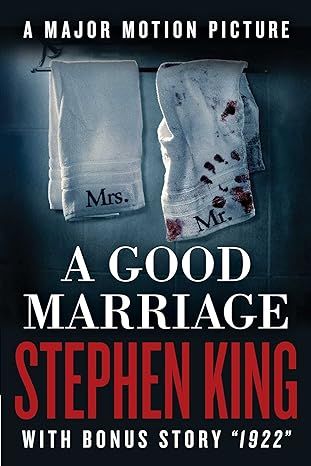
A Good Marriage
4.1
-
5,995
$4.99
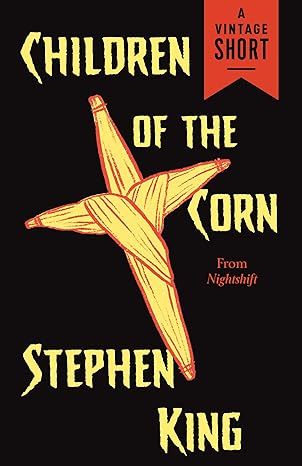
Children of the Corn (Kindle Single) (A Vintage Short)
4.3
-
1,084
$0.99
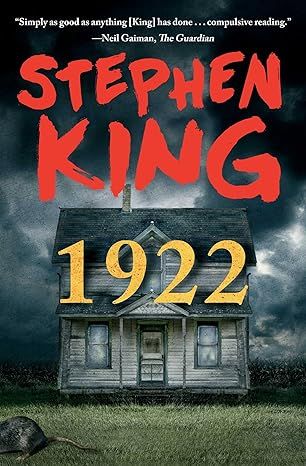
1922
4.6
-
6,082
$7.99
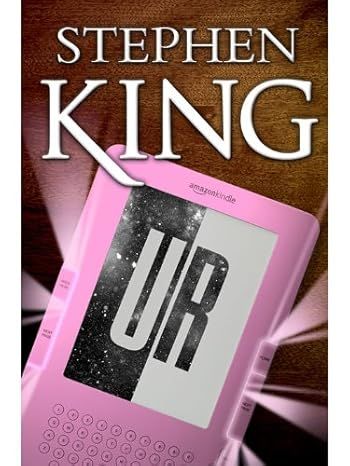
UR
4.3
-
6,140
$3.99
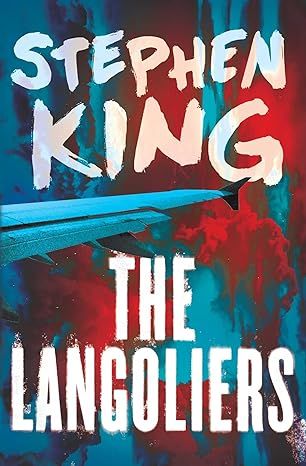
The Langoliers
4.6
-
1,014
$6.49
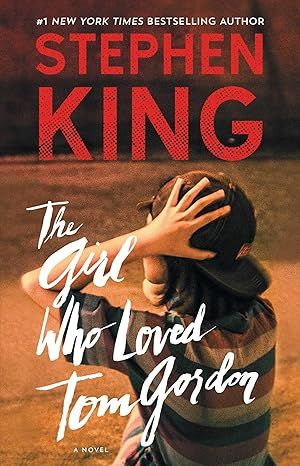
The Girl Who Loved Tom Gordon: A Novel
4.5
-
4,774
$1.17
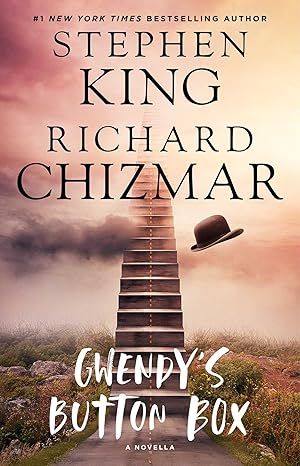
Gwendy's Button Box: A Novella (Gwendy's Button Box Trilogy Book 1)
4.5
-
21,335
$3.88
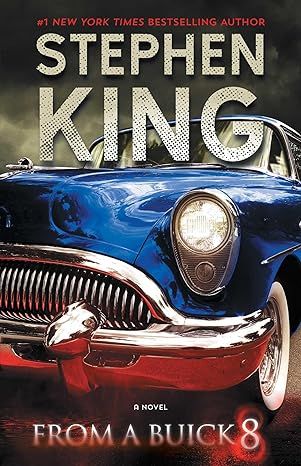
From a Buick 8: A Novel
4.3
-
2,174
$11.99
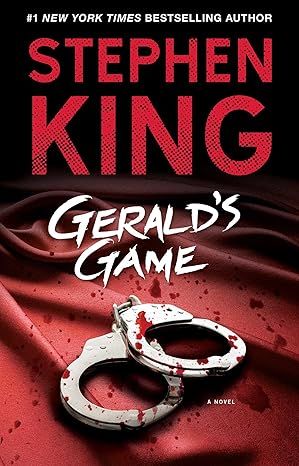
Gerald's Game
4.2
-
3,838
$1.97
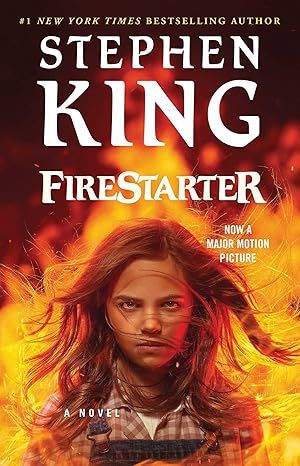
Firestarter
4.6
-
5,489
$9.99
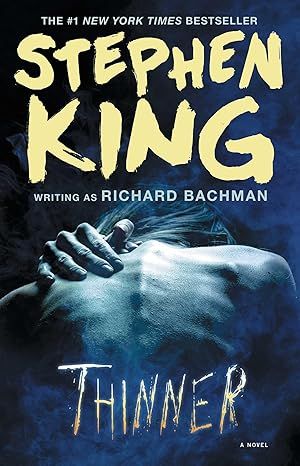
Thinner
4.5
-
3,107
$2.50
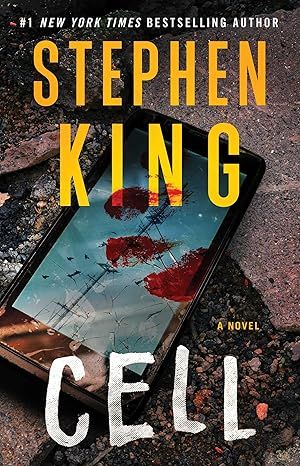
Cell: A Novel
4.3
-
5,196
$3.31
Best Sellers

The Tuscan Child
4.2
-
100,022
$8.39

The Thursday Murder Club: A Novel (A Thursday Murder Club Mystery)
4.3
-
155,575
$6.33

Sapiens: A Brief History of Humankind
4.6
-
140,302
$13.49

The Butterfly Garden (The Collector, 1)
4.3
-
88,556
$9.59

Things We Hide from the Light (Knockemout Series, 2)
4.4
-
94,890
$11.66

The Last Thing He Told Me: A Novel
4.3
-
154,085
$2.99

The Perfect Marriage: A Completely Gripping Psychological Suspense
4.3
-
143,196
$9.47

The Coworker
4.1
-
80,003
$13.48

First Lie Wins: A Novel (Random House Large Print)
4.3
-
54,062
$14.99

Mile High (Windy City Series Book 1)
4.4
-
59,745
$16.19

Layla
4.2
-
107,613
$8.99

The Locked Door
4.4
-
94,673
$8.53
